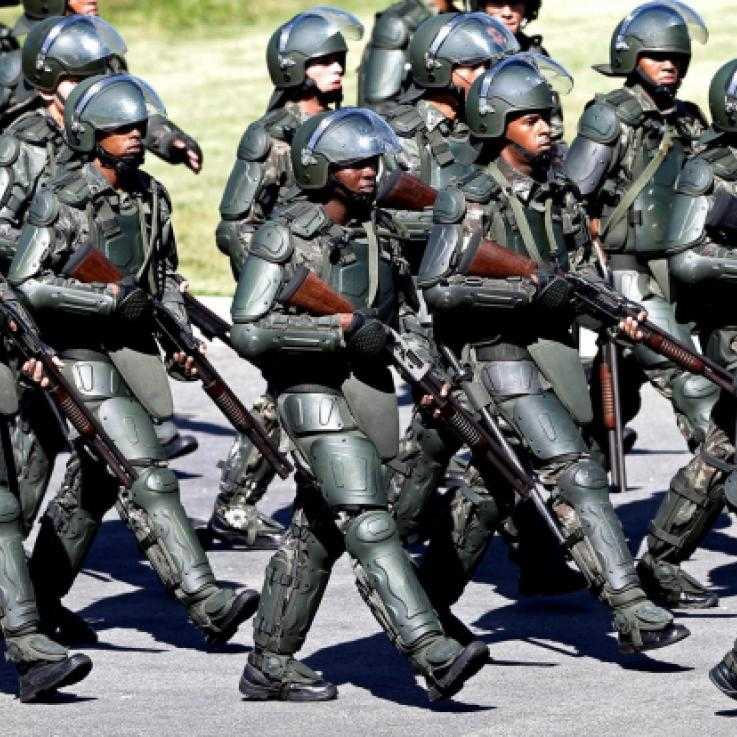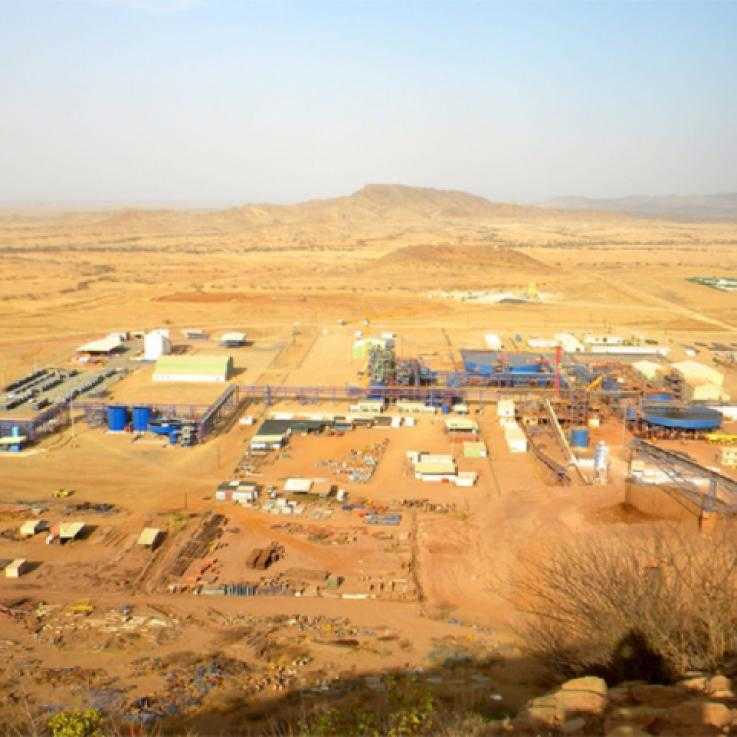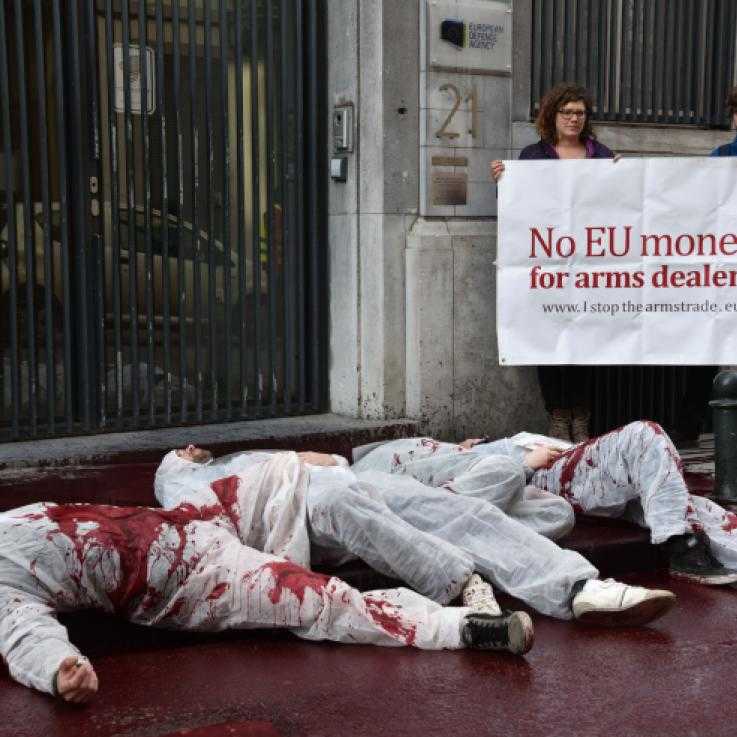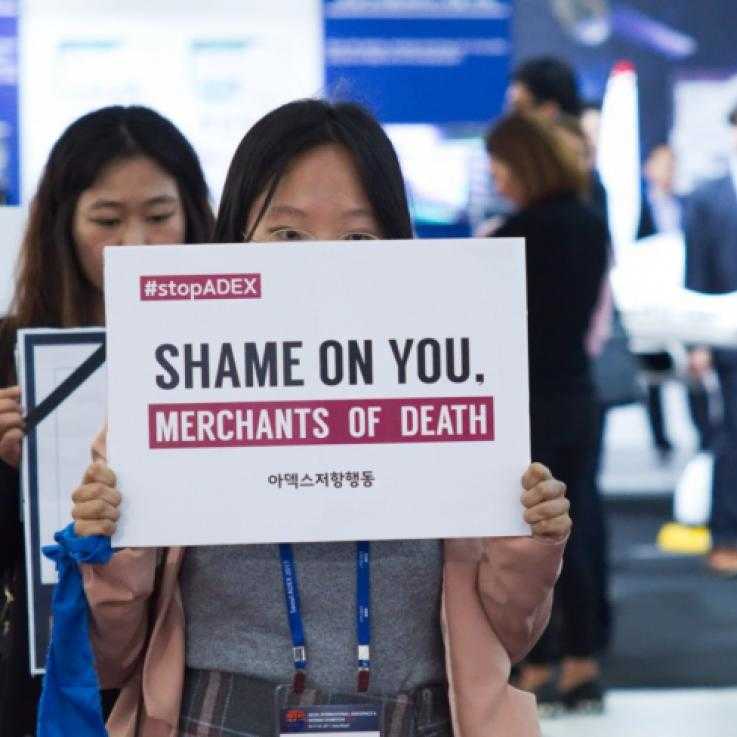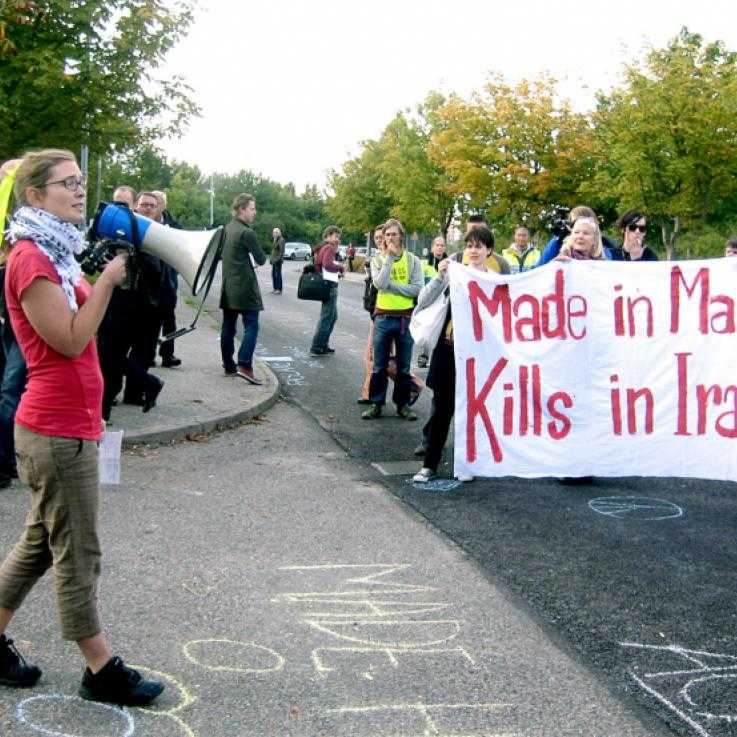All over the world, police officers are looking more and more like soldiers. To help us understand this militarisation, War Resisters' International has developed a new web resource. We've researched how police forces are being militarised, drawn together the various trends we can see taking place, and illustrated all of this as a new online map. You can explore the resource here: www.wri-irg.org/police
The European Network Against the Arms Trade (ENAAT) has released a position paper and online information tool, outlining the network's view on the key decisions the European Parliament will take on the European Industrial Defence Programme in the coming weeks and months.
ABP – Netherland's largest pension provider – has decided to end it's it's investments in companies that produce nuclear weapons, as well as investments in the tobacco industry.
In December 2017, the Colombian government hosted the ExpoDefensa arms fair in Bogota. Nearly 300 exhibitors from 35 countries took part in the fair, with over 12,000 visitors attending, including 76 official delegations.
In Canada, eleven indigenous Guatemalan women are in the process of taking a multinational mining company to court. The women allege that in 2007, police officers, soldiers, and private security personnel attacked their village of Lote Ocho, in eastern Guatemala, and burned dozens of homes in a bid to drive the community from their ancestral land.
In Canada, a court in British Colombia has rejected an appeal by Nevsun Resources, a large Canadian mining company accused of relying on modern slavery at it’s Bisha Mine in Eritrea.
Sam Walton and Rev Daniel Woodhouse were recently found not guilty of criminal damage by a judge in the UK, after breaking into BAE Warton to disarm planes bound for Saudi Arabia.
Using leaked documents, the Organized Crime and Corruption Reporting Project (OCCRP) has disclosed details of an extensive “weapons laundering scheme” involving Ukrainian companies and authorities.
In 2016 the European Union took the unprecedented step of setting up a military research programme worth 90 million euros, the so-called Preparatory Action on Defence Research (PADR).
In October, groups in New Zealand and South Korea have taken direct action against arms fairs and weapons expos taking place in their Auckland and Seoul.
Aimpoint is a Swedish company, manufacturing red-dot magnifying optic sights for a wide range of military, law enforcement, and commercial hunting weapons. Aimpoint was formed in 1974 and is based in Malmo, Sweden. Militaries all over the world, including the US military and NATO member countries use the company’s sights, and they are available from suppliers on every continent.
Since 25th August, over half a million members of Myanmar's Rohyinga community have been driven out from the north Rakhine state, with security forces torching homes, crops and villages in so called “clearance operations” the UN high commissioner for Human Rights has described as “a textbook example of ethnic cleansing.”
